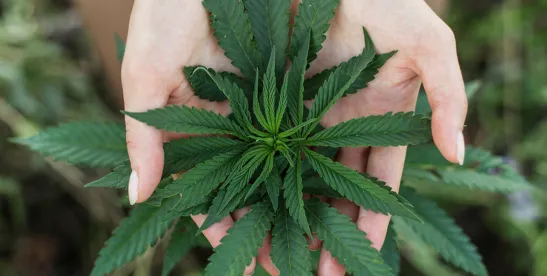Although cannabis remains illegal under federal law, that has not prevented the Occupational Safety and Health Administration (OSHA) from enforcing the Occupational Safety and Health Act (OSH Act) against cannabis-related businesses. Indeed, on July 18, 2024, OSHA’s Englewood and Denver area offices implemented a Local Emphasis Program (LEP) aimed “to reduce the incidence of serious health and physical injury or death from hazards associated with cannabis processing, growing, cultivating and product manufacturing facilities.”
Quick Hits
- OSHA area offices in Denver and Englewood, Colorado, recently implemented a Local Emphasis Program (LEP) focused on nonretail cannabis-related businesses, where the offices noted that employees are exposed to numerous hazards.
- Under the LEP, OSHA has obtained, or will obtain, a list of establishments subject to inspection from several Colorado state agencies.
- Once inspections begin, the LEP directs those inspections be “comprehensive” addressing both safety and health hazards.
The program notes that employees in the cannabis industry are exposed to a number of hazards, including:
- Fire and explosion hazards
- Unguarded machinery, pesticides, molds and dusts
- Electrical hazards from improper temporary wiring in grow locations
- Improper use of powered industrial trucks
- Improper storage of flammable materials
- Inadequate emergency response protocols
In the seven years leading up to the LEP, the Denver and Englewood area offices had conducted forty-four inspections of cannabis-related employers or workplaces. Of those inspections, twenty-nine (66 percent) resulted in a Hazard Communication (1910.1200) citation, eighteen (41 percent) resulted in a respiratory protection citation (1910.134), and nine (20 percent) resulted in a personal protective equipment (PPE) citation, as well as several citations for issues related to flammable liquids, electrical hazards, machine guarding and lock out / tag out, and fall protection. In a state with an average of 1,300 OSHA inspections annually, it seems cannabis-related employers have seen an outsized amount of OSHA inspection activity.
Under the LEP, OSHA has obtained, or will obtain, a list of establishments subject to inspection from the Colorado Department of Revenue, Marijuana Enforcement Division; the Colorado Department of Public Health and Environment; and the Colorado Department of Agriculture. The list of establishments will be randomized for inspection. The LEP provides that OSHA will engage in a ninety-day public outreach campaign before initiating program inspections. Although the minimum required campaign was completed on October 19, 2024, as of October 30, 2024, OSHA had not initiated any program-related inspections.
Once inspections begin, the LEP directs those inspections be “comprehensive” addressing both safety and health hazards “in all areas of the establishment where cannabis processing, cultivating, growing and product manufacturing activities take place.” Review of production areas will focus on:
- Material storage
- Manufacturing processes and equipment
- Chemical storage and handling
- Piping systems
- Gas and compressed gas systems
- Fire protection
- Packaging and shipping
- Electrical equipment
- Storage areas
- Cultivating areas and laboratories
Retail locations or portions of a facility that are exclusively retail will be excluded from the LEP inspections. Unprogrammed inspections, such as those emanating from a complaint, fatality, or catastrophe will continue as normal but may transition into a full facility program inspection. For establishments with ten or fewer employees, the LEP directs that the scope of the inspection may be limited to a “health” only inspection.
Facilities that fall within the scope of the LEP may want to take proactive steps to ensure their health and safety programs meet applicable standards. When OSHA does knock on the door, employers may want to proceed with caution. While an OSHA inspection is a “search” and subject to the requirements of the Fourth Amendment of the U.S. Constitution, the legal status of cannabis under federal law makes asserting constitutional protections extremely precarious.




 />i
/>i
